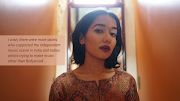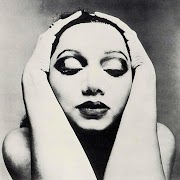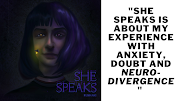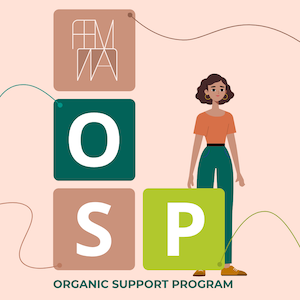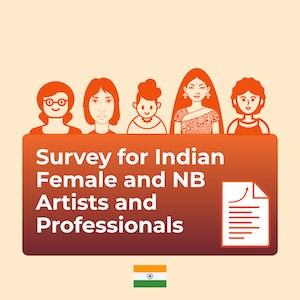 |
Asha Puthli photgraphed by Richard AvedonTalking to Asha Puthli, an artist who truly broke new ground in melding contrasting music, ahead of her performance at Le Guess Who? 2019 |
As we start, she is amiable enough to show interest in my life, and is mildly surprised when I tell her that I am from New Delhi, India. We chat briefly about her connections to Delhi, all personal, and when I questioningly bring up the notion that people from Mumbai never really take to Delhi, seeing that she was raised in Mumbai. She is quick to reject this stereotype, defending her love for the capital. We will never know her true feelings on the subject, for the inner workings of her mind are hers alone, but we have all long since known that Asha has repeatedly cut across boundaries and stereotypes, whether blatant or unspoken.
"I felt compelled to create a global kind of fusion between the oldest and youngest cultures," she says, referring to India and America respectively, and her need to transcend beyond her Indian roots in pursuit of creative fulfillment.
People fumble into celebrity, or are planted in it through others' machinations, or sometimes vie for it quietly, afraid that voicing their desires any louder may be undignified, crass. Asha belongs to an entirely different class of people, to those who do not concern themselves with how their ambition may be perceived, riveted instead on captivating many, using all means at their disposal.
Asha belongs in the public eye.
It is therefore quite tragic that knowledge of Asha's contributions remains not quite as widespread, especially considering the impact her music has had on hip-hop and electronic music, preceding, and leading the way, for acid jazz and space disco long before the terms came to be. One would imagine someone who was the Downbeat critics poll award winner alongside Ella Fitzgerald, for her work with one of the founding fathers of free jazz, Ornette Coleman, and whose work has since been sampled by the likes of Biggie, P. Diddy, The Pharcyde and numerous others, would be a household name of sorts.
One of her most popular songs 'Space Talk' was transmitted into deep space to celerate the 40th anniversary of the moon landing - a fitting commission for "the woman who fell to earth". She starred in Andy Warhol's Bad Marien's Last Year, alongside famed transgender actress Holly Woodlawn - who she wrote 'You've Been Loud Too Long' for - and in James Ivory's Savages. To all appearances, Salman Rushdie crafted a character based entirely on Asha's life and career progression in his novel The Ground Beneath Her Feet, and Diana Vreeland and Salvador Dali were both early admirers of her electric presence and outré style. Debbie Harry's style and singing both drew inspiration from Asha, by Debbie's own admission, and Asha asserts that so did Donna Summer's, although there is a mythical quality to that particularly saucy bit of trivia.
While the authenticity of that last claim is unverifiable, it is not, however, unbelievable. Successfully marrying the intricacy of traditional Indian garb with the free-flowing expression of the West, Asha quickly estalished herself as a glamorous trendsetter, always experimenting, never relenting.
Asha's discography has similarly been deeply imbued with this motif of constant experimentation, of bringing something new and to the table. Today standing out is a precondition to celebrity. At the time it seemed just as much as a liability, as it did an advantage. Sobriquets like 'eccentric', 'iconoclast', and 'avant garde' frequently cropped up in her context. While any of these terms today would be an outright compliment for the most part, at the time they seemed more an oblique codification of the work of an outsider. This may seem like conjecture, as it may as well be, but it helps to remember the continuous push she faced to change her name to something not quite so overtly Indian.
"In the old days, I used to very subtle, but I would bring in a murki in a subtle form in certain songs. I couldn't be blatantly all Indian. Already, my name was a detriment. CBS did not like the idea of promoting me because I refused to change my name," Asha concurs. "They would always say the -'Indian singer', categorising me like that. And I was just really trying to break these walls and boundaries."
 |
| Asha Puthli shot by Mick Rock for the Cover of Space Talk. Puthli was a trained in Odissi, and frequently used hand gestures from Indian dance forms in photos |
It was owing to this repudiation that while Asha, who was trained in Indian classical music and operatic singing, grounded her vocal style in their respective foundations, she also expanded them, diversified them, to shape the modern day disco sound. "I think the creative process has to consistently evolve. I mean, there is a committment, but you have to be open. I represent that openness, so I have exercise it as well."
The serious nature of Indian classic music, and even jazz - that Asha was so wholly drawn to - is projected axiomatically as highbrow, implying indirectly that it isn't for the masses; an idea that takes an especially dim view of the zeitgeist. Through her extraordinary singing style Asha continued bringing glam's levity and playfulness to jazz and jazz's cerebral musicianship to disco.
In her own words, in her upcoming jazz tribute album Asha will be coming full circle, paying homage to the avant garde jazz influences from the start of her career. Upon inquiry if she will be performing material from the album, she is quick to point out that there will be no jazz played in her Le Guess Who? performance. "Niranjan Jhaveri, who was an Indian jazz critic, always used to say 'Asha, no matter what you sing, the jazz will always creep in'," she adds.
I tell her when I am asked if I cook Indian food at home, I respond by telling whoever's asking that all food I make is Indian food, since I am Indian, and that makes her laugh.
She tells me a little more about the ensemble that will accompany her during this rare performance. There is Dario Carlo, who co-wrote multiple songs on Lost recorded in Monte Carlo in 2008, American composer and bassist Dave King, and India's Imaad Shah and Saba Azad who perform as Madboy/Mink and with whom she collaborated at a Red Bull Music event last year. "It's a very global band that spans three generations."
This virtue of being global, of cultivating a cosmopolitan artistic identity is at the core of Asha's far reaching influence, one that keeps resurfacing with renewed vigor every decade or so in a different pocket of the music landscape. Her South Asian origins and classical training were used regularly to relegate her to dusty niches, so she took deliberate steps to eclipse this received idea of chasteness and humility by conjugating innocence with unflappable swagger and steamy sensuality.
We mull over the sexiness in her music. While there were admittedly more direct references to sex in 70s music than ever before, predominantly, whether it was Barry White's 'I’m Gonna Love You Just A Little More Baby' or 'Let’s Get it On' by Marvin Gaye, most of this baby-making music was infused with masculine sexuality. Asha's music demanded participation for women in this sexual revolution, expressing sexual desires openly when sexual equality for women was arguably much further away than it is today.
 |
| Asha Puthli, Vali Myers, and Cheyenne photographed by Francesco Scavullo |
One instance she recounts apropos of this involves late actor Ben Gazzara and his second wife Janice Rule. She talks about the time they met and got along famously at a party in The Regency on Park Avenue, at the end of which Janice asked for Asha's name and number. Upon discovering who Asha was, she yelled across the bar at Gazzara, "Ben, guess what?! What do we do before making love"? as forks and knives clattered to a halt around them. The answer, of course, was that they would put Asha's music on. "I guess my music turned some people on," concludes Asha, not without a hint of pride.
I am curious as to where this secure, free sexual expression comes from considering the sub-rosa mannerism adopted by the sub-continent when it comes to conversations around sex in India. It was perhaps this furtive treatment of 'private' matters that sparked in her the need to find things out for herself. She relates back to the aura of fear around the Kinnar community in India, who are routinely given a wide berth by the rest of India's populace due to a general unwillingness to expand the discourse around sex and gender, and connects it to her friendship with Holly Woodlawn. The two grew very close after being introduced to each othe rby Warhol, living together for a time, as Asha turned over her own former beliefs regarding gender fluidity in her mind.
Asha sustains this receptivity to ideas that she hadn't previously explored in life and in art, which arguably for her are one. Her personal and artistic values continue to overlap, as she pushes aside any sense of visible bitterness - whether we are talking about CBS Records (now Sony) washing their hands off her through pregnancy description upon realising she couldn't legally perform in the UK after they had already signed her, or if we are discussing the callous borrowing of her music for purposes of sampling without her knowledge, much less her consent.
Asha seems content simply to be giving.
This generosity and vicissitude hike up the appeal of her upcoming performance tenfold, because we can be certain Asha will not bore us, for that will bore her, too. She headlines Le Guess Who? festival in Utrecht on November 10, 2019, Sunday, among a host of meticulously curated prodigious acts from around the world.
Written by Uvika Wahi








